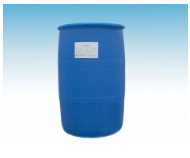The different degree of polymerization of the same surfactant has a great influence on the size and dispersion of ZnO nanoparticles. Wu Wei et al. Studied the effect of PEG with different molecular weight on the size and dispersion of ZnO nanoparticles. The results show that nano ZnO modified by PEG in situ can disperse Zn (OH) 2 by adsorbing on the surface of Zn (OH) 2 precursor and depending on the steric hindrance effect produced by the long chain structure of PEG. If the molecular weight of PEG is too small, it can not play the role of steric hindrance. If the molecular weight of PEG is too large, the intermolecular force between particles will be enhanced and agglomeration will occur.

It is also very important to select the appropriate amount of surfactant in the control of particle size, particle size distribution, particle shape and so on. Too much or too small amount of surfactant will affect the properties of nano ZnO to a certain extent.
The particle size of ZnO powder varies with the amount of surface modifier, and the particle size of nano ZnO will be small only when the dosage is good. This is because when the amount of surface modifier is small, there is not enough repulsion force between particles or on the surface of particles to prevent the gravitation of particles close to each other, so that agglomeration occurs. However, when the amount of surfactant is too much, there is a surplus of surfactant between the particles, which prevents the free movement between the particles, thus causing the particles to agglomerate. In addition, the binding of surfactant itself will also promote the particles to close to each other and agglomerate.
By comparing the particle size and dispersion degree of nano ZnO prepared with different amount of peg-300, it can be found that excessive amount of peg-300 is not conducive to the dispersion of nano ZnO particles. Chen Huaijie et al. Studied the preparation of nano Zinc Oxide by sol-gel method. It was also pointed out that the different dosage of the same surfactant would affect the gelling state of the precursor of nano Zinc Oxide. It was suggested that the amount of polyethylene glycol -400 could be stabilized by adding 130-200ml polyethylene glycol -400 and Zn (OH) 2 to 1molZn2+. Zhuang Tao and so on used titanate coupling agent (NDZ-201) in the study of natural rubber. The surface active agent of nano zinc oxide was prepared. The results show that the nano zinc oxide powder modified by 1% ~ 5% titanate has good dispersibility and small size uniform dispersion. The dispersion of nano ZnO powder modified with 20% ~ 60% titanate is not as good as that with small amount of titanate, which is due to the flocculation of the powder caused by the excessive amount of titanate, which makes its dispersion worse.